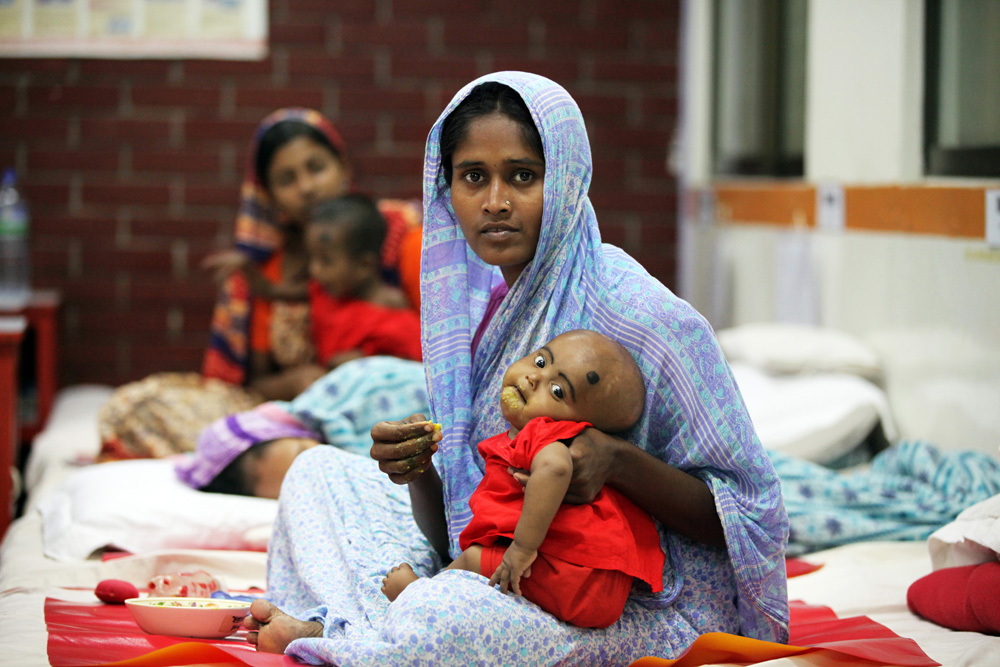UN photo
By
Sheuli Akter
The government of Bangladesh and the World Bank have launched a cash benefits program for 600,000 of the country’s poorest mothers and pregnant women in exchange for their participation in activities to improve their children’s nutrition and cognitive development.
The beneficiary mothers and pregnant women will receive quarterly electronic cash transfers for utilizing services related to their children’s health and development, including antenatal care visits, child growth monitoring and early learning activities for children under the age of five at the community clinics.
The World Bank says it has committed $300 million for the program, which will benefit over one million children. At the launch of the “Jawtno Program” here on Sunday, 51 poor mothers received their first payment through biometrically-secured Post Office cash cards.
“Despite Bangladesh’s remarkable progress in immunization coverage, and infant mortality reduction, about 36 percent of children under five are stunted. The children from poor households bear a disproportionate burden of stunted growth,” said Qimiao Fan, World Bank Country Director for Bangladesh, Bhutan and Nepal. “The World Bank places a high priority on supporting Bangladesh to improve the nutrition and cognitive development of children in their early years. The Jawtno Program focuses on prenatal care, and young children’s nutrition and cognitive development, and these efforts help poor children to do better in adult life.”
The Jawtno Program will select eligible beneficiaries using the National Household Database being developed by the Bangladesh Bureau of Statistics. An automated Management Information System will help the program monitor beneficiary enrolment, attendance, payments and grievances.
The program will be implemented in 43 sub-districts with a high prevalence of poverty and malnutrition in seven districts, namely, Jamalpur, Mymensingh, Sherpur, Gaibandha, Kurigram, Lalmonirhat, and Nilphamari.
“The Jawtno Program will contribute to the empowerment of women, which will help Bangladesh achieve Sustainable Development Goals and reduce poverty,” said Khandker Mosharraf Hossain Minister for Local Government, Rural Development and Cooperatives. “The program will also establish Safety Net Cells at the Union Parishads, which will strengthen the Union Parishad’s capacity to implement safety net programs. As a result, I believe, sustainable development will be ensured.”
The Washington-based lender says the program is built upon the success of the pilot Shombhob, which found that beneficiary households experienced an increase in consumption of nutritious foods and children’s health outcomes when cash transfers were linked to the use of growth monitoring and nutritional counselling services.
The program will also strengthen the capacity of the Union Parishads (the lowest of Bangladesh’s local government administration) to administer the conditional cash transfer program; community clinics to deliver nutrition counselling, growth monitoring and child cognitive development services; and the Union Post Offices to use biometric technology for cash transfers.



No Comments Yet!
You can be first to comment this post!